Filter by
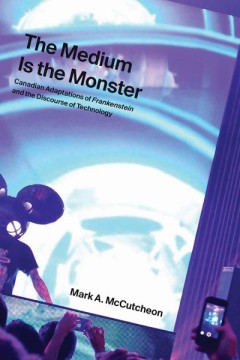
The Medium Is the Monster Canadian Adaptations of Frankenstein and the Disco…
Technology, a word that emerged historically first to denote the study of any art or technique, has come, in modernity, to describe advanced machines, industrial systems, and media. McCutcheon argues that it is Mary Shelley’s 1818 novel Frankenstein that effectively reinvented the meaning of the word for modern English. It was then Marshall McLuhan’s media theory and its adaptations in Cana…
- Edition
- -
- ISBN/ISSN
- 9781771992244.01
- Collation
- -
- Series Title
- -
- Call Number
- 6 x 9, 248 pages
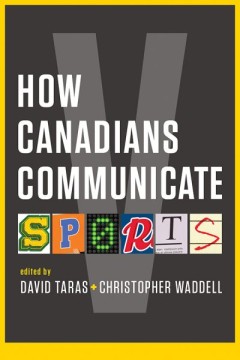
How Canadians Communicate V Sports
Writing from a variety of perspectives, the contributors to this collection set out to explore the impact of the media on our reception of, and attitudes toward, sports—to unpack the meanings that sports have for us as citizens and consumers. Some contributors probe the function of sports as spectacle—the escalation of violence, controversies over drug use, and the media’s coverage of tra…
- Edition
- -
- ISBN/ISSN
- 9781771990073.01
- Collation
- -
- Series Title
- -
- Call Number
- 395 pages
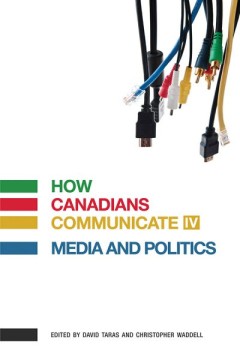
How Canadians Communicate IV Media and Politics
With contributions from such diverse figures as Elly Alboim, Richard Davis, Tom Flanagan, David Marshall, and Roger Epp, How Canadians Communicate IV is the most comprehensive review of political communication in Canada in over three decades – one that poses questions fundamental to the quality of public life.
- Edition
- -
- ISBN/ISSN
- 9781926836812.01
- Collation
- -
- Series Title
- -
- Call Number
- 400 pages
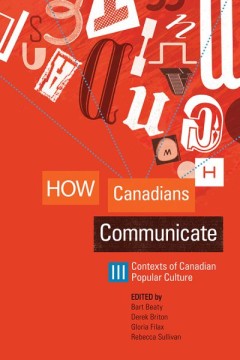
How Canadians Communicate III Contexts of Canadian Popular Culture
Canada does indeed have a popular culture distinct from other nations. How Canadians Communicate III gathers the country’s most inquisitive experts on Canadian popular culture to prove its thesis.
- Edition
- -
- ISBN/ISSN
- 9781897425596.01
- Collation
- -
- Series Title
- -
- Call Number
- 369 pages
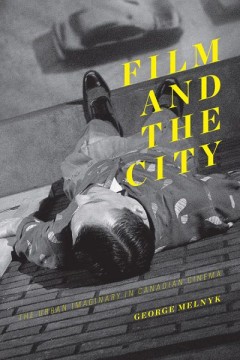
Film and the City The Urban Imaginary in Canadian Cinema
Examining fourteen Canadian films produced from 1989 to 2007, including Denys Arcand’s Jésus de Montréal (1989), Jean-Claude Lauzon’s Léolo (1992), Mina Shum’s Double Happiness (1994), Clément Virgo’s Rude (1995), and Guy Maddin’s My Winnipeg (2007), Film and the City is the first comprehensive study of Canadian film and “urbanity”—the totality of urban culture and life. Dra…
- Edition
- -
- ISBN/ISSN
- 9781927356593.01
- Collation
- -
- Series Title
- -
- Call Number
- 319 pages
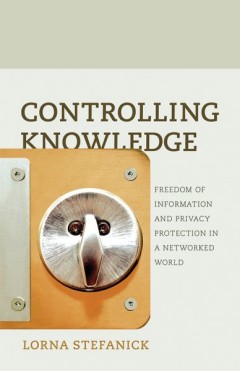
Controlling Knowledge Freedom of Information and Privacy Protection in a Net…
Intended to serve as a “citizen’s guide,” Controlling Knowledge is a vital resource for anyone seeking to understand how freedom of information and privacy protection are legally defined and how this legislation is shaping our individual rights as citizens of the information age.
- Edition
- -
- ISBN/ISSN
- 9781926836263.01
- Collation
- -
- Series Title
- -
- Call Number
- 264 pages
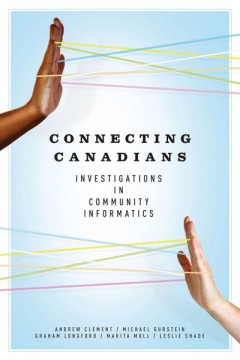
Connecting Canadians Investigations in Community Informatics
Funded for four years by the SSHRC’s Initiative for the New Economy, CRACIN systematically studied a wide variety of Canadian community ICT initiatives, bringing perspectives from sociology, computer science, critical theory, women’s studies, library and information sciences, and management studies to bear on networking technologies. A comprehensive thematic account of this in-depth researc…
- Edition
- -
- ISBN/ISSN
- 9781926836041.01
- Collation
- -
- Series Title
- -
- Call Number
- 518 pages
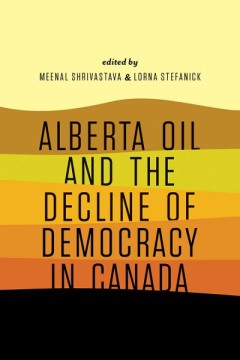
Alberta Oil and the Decline of Democracy in Canada
In probing the impact of Alberta’s powerful oil lobby on the health of democracy in the province, contributors to the volume engage with an ongoing discussion of the erosion of political liberalism in the West. In addition to examining energy policy and issues of government accountability in Alberta, they explore the ramifications of oil dependence in areas such as Aboriginal rights, environm…
- Edition
- -
- ISBN/ISSN
- 9781771990295.01
- Collation
- -
- Series Title
- -
- Call Number
- 440 pages
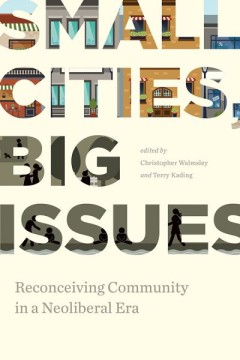
Small Cities, Big Issues Reconceiving Community in a Neoliberal Era
If local governments accept a social agenda as part of its responsibilities, the contributors to Small Cities, Big Issues believe that small cities can succeed in reconceiving community based on the ideals of acceptance, accommodation, and inclusion. With contributions by Lorry-Ann Austin, Jacques Caillouette, Graham Day, Robert Harding, Wendy Hulko, Paul Jenkinson, Kathie McKinnon, Sharlene…
- Edition
- -
- ISBN/ISSN
- 9781771991636.01
- Collation
- -
- Series Title
- -
- Call Number
- 6 x 9, 334 pages

How Canadians Communicate IV Media and Politics
With contributions from such diverse figures as Elly Alboim, Richard Davis, Tom Flanagan, David Marshall, and Roger Epp, How Canadians Communicate IV is the most comprehensive review of political communication in Canada in over three decades – one that poses questions fundamental to the quality of public life.
- Edition
- -
- ISBN/ISSN
- 978-1-926836-81-2
- Collation
- -
- Series Title
- -
- Call Number
- -
 Computer Science, Information & General Works
Computer Science, Information & General Works  Philosophy & Psychology
Philosophy & Psychology  Religion
Religion  Social Sciences
Social Sciences  Language
Language  Pure Science
Pure Science  Applied Sciences
Applied Sciences  Art & Recreation
Art & Recreation  Literature
Literature  History & Geography
History & Geography